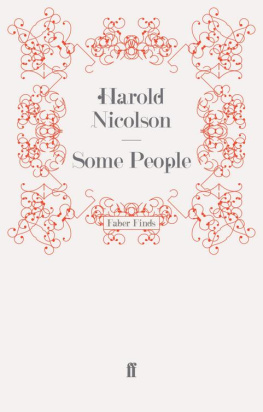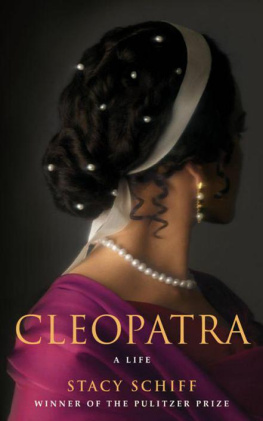1.
U NTIL recently, the first thing that I remembered was that railway accident in Southern Russia. Stamped upon my mind was the picture of our train brought to a standstill in the open steppe: a snow-bound horizon glimmering like a large white plate under the stars: the engine in front upwardly belching sparks: the carriage at the back, which was the cause of our stoppage, crackling into little scarlet flames; and myself a supine bundle being lifted down from some great height to many hands stretched up towards metheir fingers flickering, as in a Reinhardt play, to the light and shadow of the conflagration. That picture, so vivid to me and so sincere, became a cherished mental possession: it was labelled The first thing I remember.
I was disappointed therefore when, on my telling my mother how curiously vivid was this my recollection , I was informed that I had got it all wrong. It was true that on returning from Persia we had travelled across the Russian steppes: it was true that the last carriage had caught fire and that the train had stopped; but the incident had happened in the early afternoon of a warm spring day, and I, who was but eighteen months at the time, had slept on unmoved, sucking subconsciously at an india-rubber comforter, indifferent to adenoids and accidents. This adventure has thus been taken from me; it has become but the first of my illusions. Its place in my memoirs has perforce been filled by the picture of Miss Plimsoll, over a year later, arriving at the railway station at Buda Pesth. She wore a red close-fitting dress buttoned down the bust and a little peaked bonnet. She advanced towards us with an expectant and ingratiating manner. Behind her streamed and swayed an undefined background of black, of violet and of gold. It is this background that has so often puzzled me. For years I assumed that the railway station at Buda Pesth was for some reason painted and striped in these predominant colours. But in 1919 I spent a whole week in that railway station, being attached to General Smuts mission to Bela Kun. We were not allowed, while the negotiations continued, to enter the town. We did our work, we held our conferences, in the dining-car of our own train. It stood there inside the stationa brown international object straight from Paris. The platform on either side of us was isolated by a cordon of red guards. From the town outside one could hear bands playing and the occasional scream of a factory siren. Hour after hour I paced those two platforms thinking about Miss Plimsoll and the last time, so many years ago, that I was there. I was puzzled to account for that coloured background which formed so large a constituent in my mental picture. In vain I made inquiries. It was only by chance that I learnt later how on the day of Miss Plimsolls arrival the station had been draped with black and violet curtains tied with golden cords. The Archduke Rudolph had been found dead in his shooting box at Meyerling. The body was passing through that day on its way either from or to Vienna. My recollection, therefore, was abundantly confirmed. This time I was right.
Miss Plimsoll, on being presented to me, said, Well, dear, we are going to be great friends, arent we? I was pleased at this, since by rights Miss Plimsoll didnt belong to me at all. She belonged to my brothers, who were infinitely older. I myself had not yet reached the governess stage, but was in charge of Anna, my dear Anna, who was German and had a sewing-machine and used to eat raw bacon on a green plate. We all came out of the railway station and drove to the Andrassy Strasse where we lived. There was a little garden in front with a terra-cotta fountain, and surmounting the pediment at the top was a statue of Mercury fashioned in the same material. The sirens of the factories would scream and hoot in the mornings while I was being washed.
2.
I must admit that the figure of Miss Plimsoll, so vivid to me as at first manifested, becomes thereafter, and for a period of two years, somewhat blurred. There is a gap in my recollections in which I cannot visualise Miss Plimsoll, but can only deduce her. The foreground is occupied by Anna, and when I think back to that period my memory adjusts itself to German strange Teutonic endearments rise slumberously to the surface like old white fish. I know, however , that Miss Plimsoll was there all the time: she it was, doubtless, who forbade me to suck those little cardboard cigarette-holders which one found so often near the benches in the park: she also, it must have been, who placed a veto on our visits to the Panoptikon . The Panoptikon opened off the Andrassy Strasseon the left as one went towards Buda: there was a little guichet where we took our tickets and then a red curtain beyond which swelled a gulf of darkness punctuated by pairs of phosphorescent eyes. These eyes were, in fact, apertures through which one gazed at stereoscopic views of the Place de lOpra or the Drachenfels or the war memorial at Coblentz. My brothers adored the Panoptikon: I said I liked it too; but in fact it filled me with an abiding terror: for me the Panoptikon was hell. I was glad, therefore , when Miss Plimsoll decreed that it was out of bounds: it was, she said, exactly the sort of thing that gave little boys scarlet fever.
No, except from the detached and vivid picture of her arrival, Miss Plimsoll assumes definite outline for me only after we had left Hungary for England. The real Miss Plimsoll, the Miss Plimsoll who became so familiar in the years that followed, first emerges standing outlined against the sky of Kentstanding upright, and still in a close-fitting red dress buttoned on the bust, upon one of the ramparts of Csars camp at Folkestone. Her hand is raised with the index and middle finger outstretched: her hand in the cold wind from the downs is coloured red and blue like a Brigade tie. Now, she cries, now, boys, all together. Eastward Ho! Eastward Ho! Three shrill obedient voices answer her. Eastward Ho! Eastward Ho! Miss Plimsoll gazes out in the direction of Dover. Once again, she exhorts us, waving her hand, all together! Eastward Ho! Eastward Ho! Again we shouted response. The picture of her standing there under the wide and gentle sky is very arresting: it is accompanied in my memory by a feeling-tone of discomfort. Even at the age of five I reacted instinctively against the romantic: Miss Plimsoll at that moment saw herself doubtless as stout Cortes; but I, looking up at her, answering her wild plover cry, felt that Miss Plimsoll was showing off. A few days later we all left for Marseilles, and from there by the Messageries to Athens and Constantinople.
Miss Plimsoll wore dog-skin gloves which smelt faintly of ammonia. It was these gloves which she clapped across my face when the Greek lady committed suicide on the Acropolis. I saw the Greek lady, standing at the edge of the Chalcotheca while we were visiting the wingless victory near by: I saw that bonneted, tight-sleeved, tight-bosomed silhouette of the early nineties sway somewhat and then bend at the knees as if about to spring: then suddenly there descended upon me the gloved fingers of Miss Plimsoll trembling violently. I struggled blindfolded. And when again I was allowed to look the Greek lady was no longer there. Hush, darling, said Miss Plimsoll when I expostulated. When we got to the bottom again, there was a large crowd and several cabs waiting.
At first Miss Plimsoll did not care for Constantinople . She held her handkerchief to her nose when walking from our house to the Embassy: she mistrusted the food and would gaze silently at her plate for a moment and then attack it rapidly and with half-closed eyes. This irritated my father. We were quick to notice that at this period Miss Plimsoll grated somewhat upon my fathers nerves. She was always asking whether things were really safe: this amused us: it was only when we moved up to Therapia that the Cortes side of Miss Plimsoll again asserted itself. It was then only that she settled down. It was then also that she suited the Hut.











